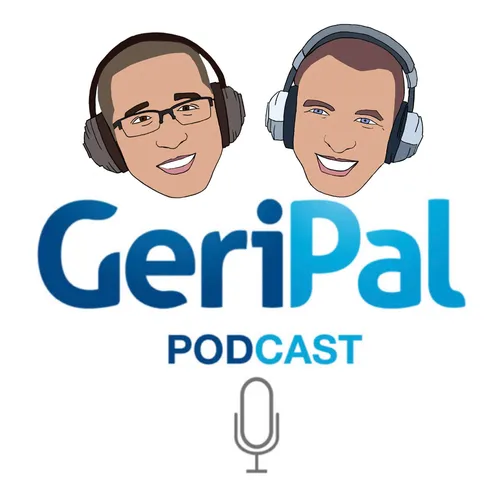
GeriPal - A Geriatrics and Palliative Medicine Podcast
A geriatrics and palliative medicine podcast for every health care professional.
Two UCSF doctors, Eric Widera and Alex Smith, invite the brightest minds in geriatrics, hospice, and palliative care to talk about the topics that you care most about, ranging from recently published research in the field to controversies that keep us up at night. You'll laugh, learn, and maybe sing along.
CME and MOC credit available (AMA PRA Category 1 credits) at www.geripal.org
- Update frequency
- every 7 days
- Average duration
- 42 minutes
- Episodes
- 373
- Years Active
- 2016 - 2025
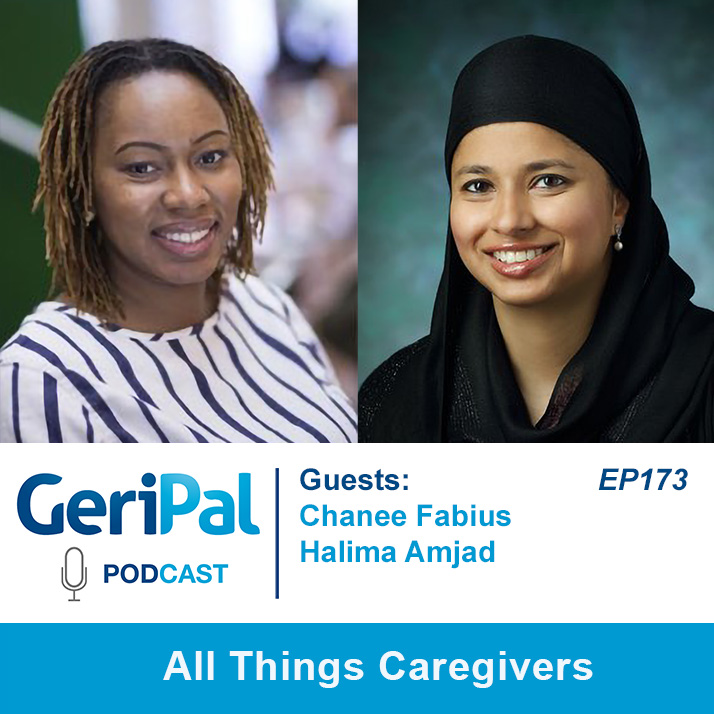
All Things Caregivers: Podcast with Chanee Fabius and Halima Amjad
What is a care manager? In this week’s podcast we talk with Chanee Fabius, who after a personal experience caring for a family member with dementia, became a care manager. Chanee explains in clear…

Geriatric Cardiology and "Pump Head" Revisited: Podcast with Liz Whitlock and Mike Rich
A September 2000 New York Times article titled, “Sometimes Saving the Heart Can Mean Losing the Memory” describes a relatively newly described phenomena of difficulty with memory and other cognitive …
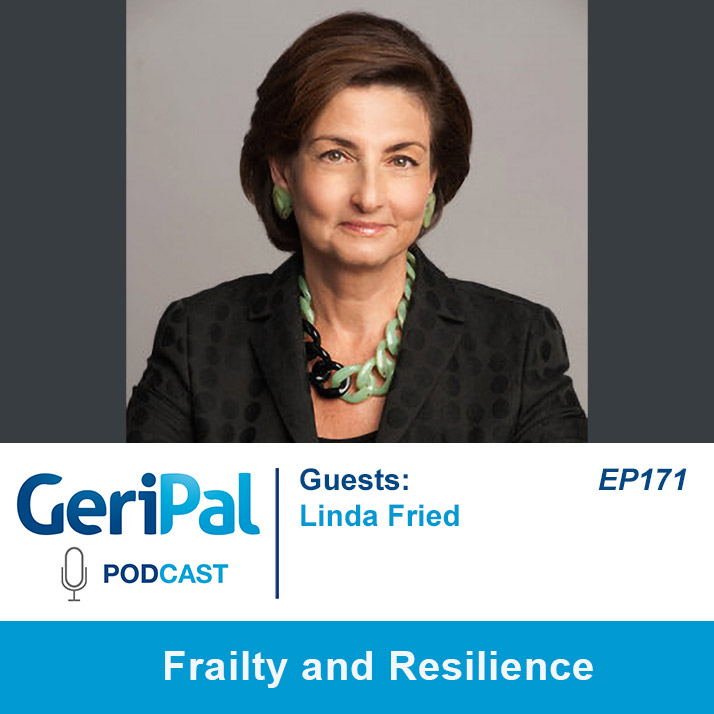
Frailty and Resilience: A Podcast with Linda Fried
Frailty. What the heck is it? Why does it matter? How do we recognize it and if we do recognize it, is there anything we can do about it? On today’s podcast we talk to Linda Fried, Dean of Columb…
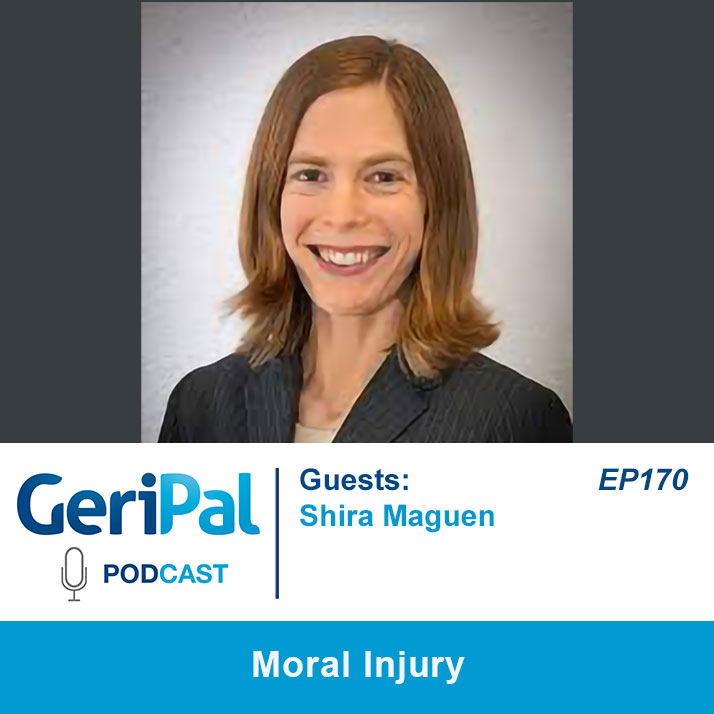
Moral Injury: Podcast with Shira Maguen
Though origins of the term “moral injury” can be traced back to religious bioethics, most modern usage comes from a recognition of a syndrome of guilt, shame, and sense of betrayal experienced by sol…
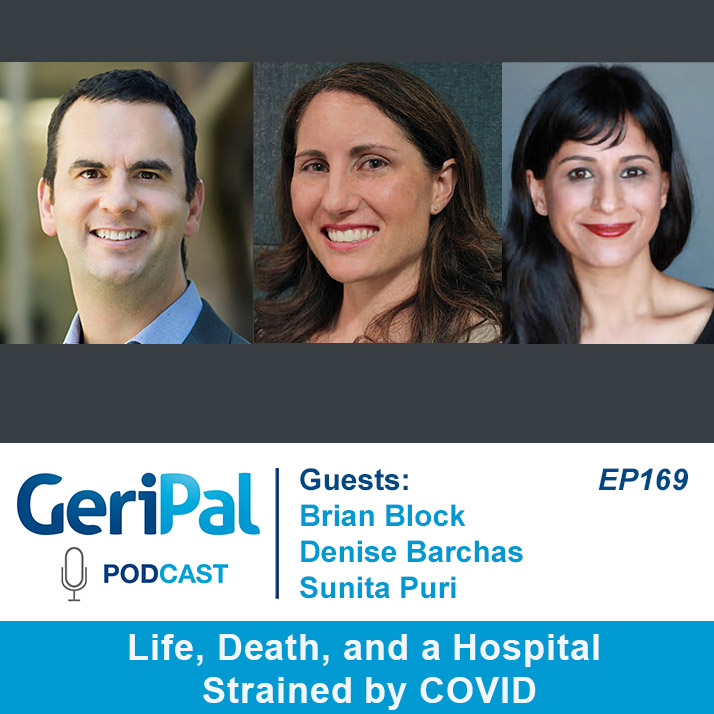
Life, Death, and a Hospital Strained by COVID: Podcast with Brian Block, Sunita Puri and Denise Barchas
During the winter peak in coronavirus cases, things got busy in my hospital, but nothing close to what happened in places like New York City last spring or Los Angeles this winter. Hospitals in thes…

Disability in the home: Podcast with Sarah Szanton and Kenny Lam
We know from study after study that most older adults would prefer to age in place, in their homes, with their families and embedded in their communities. But our health system is in many ways not p…
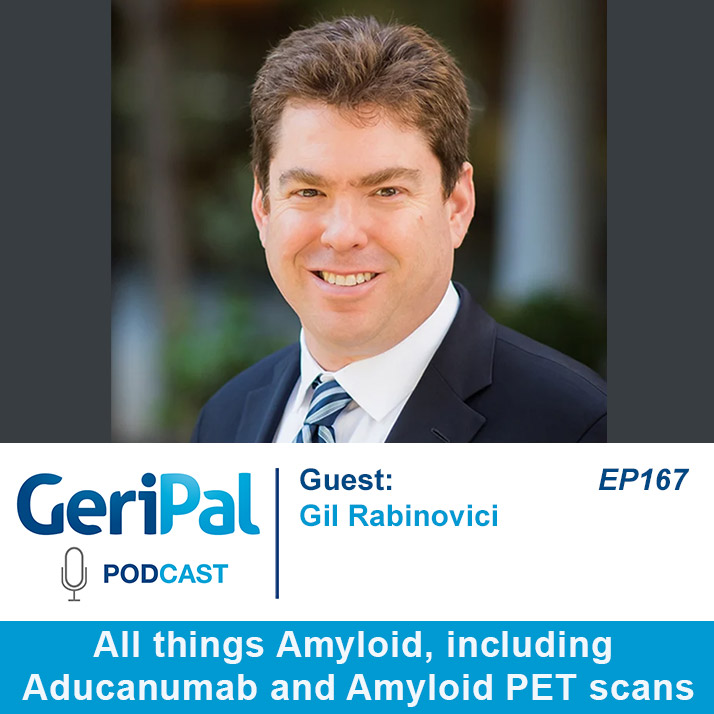
All things Amyloid, including Aducanumab and Amyloid PET scans with Gil Rabinovici
There are no currently approved disease modifying drugs for Alzheimer's disease, but in a couple months that may change. In July of 2021, the FDA will consider approval of a human monoclonal antibo…

Ageism + COVID19 = Elder Genocide: Podcast on nursing homes with Mike Wasserman
One of our earliest COVID podcasts with Jim Wright and David Grabowski a year ago addressed the early devastating impact of COVID on nursing homes.
One year ago Mike Wasserman, geriatrician and imm…
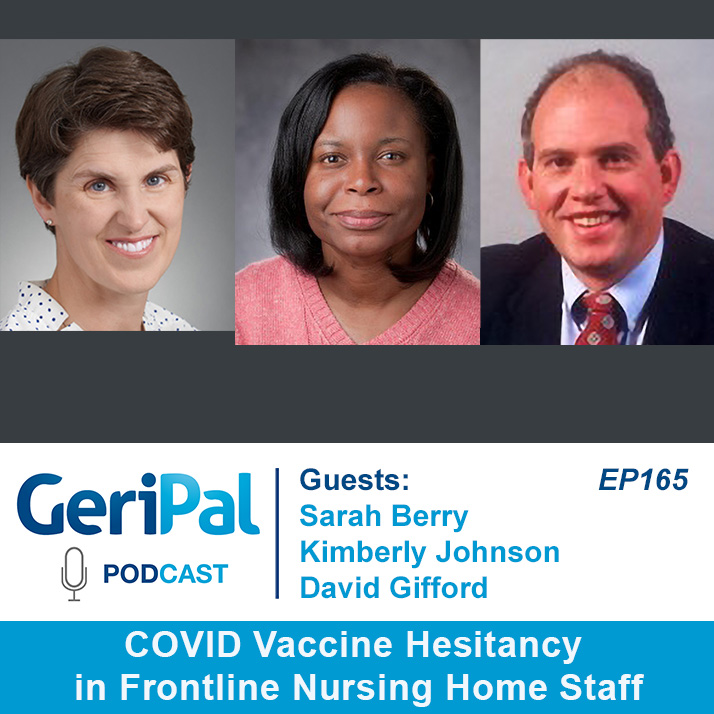
COVID Vaccine Hesitancy in Frontline Nursing Home Staff
COVID has taken a devastated toll in nursing homes. Despite representing fewer than 5% of the total US events, at least 40% of COVID‐19–related deaths occurred in older individuals living in nursing…
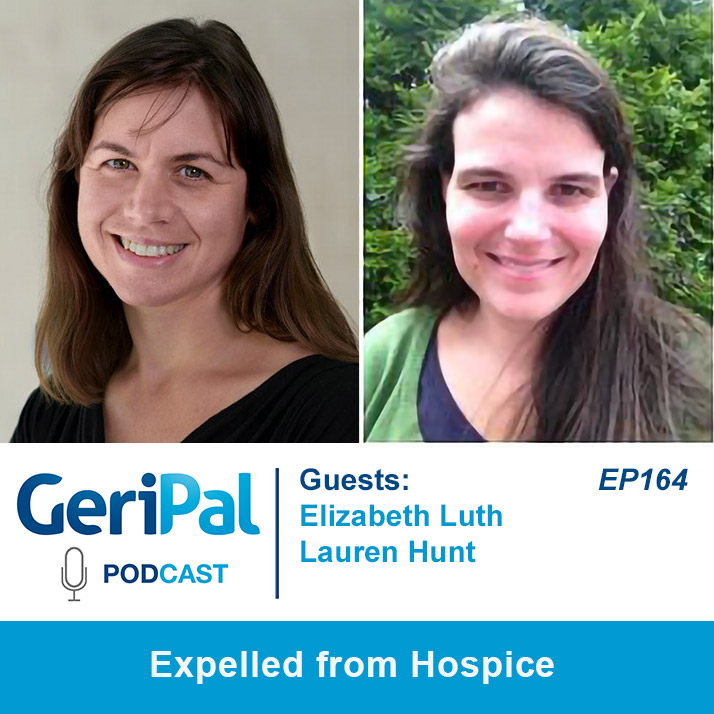
Expelled from Hospice: Podcast with Elizabeth Luth and Lauren Hunt
Hospice may not be a great match for all of the care needs of people with dementia, but it sure does help. And, as often happens, when patients with dementia do not decline as expected, they are too…

Reframing Aging: A Podcast with Patricia D'Antonio
The COVID pandemic brought to light many things, including how society views older adults. Louise Aronson wrote a piece in the NY Times titled “‘Covid-19 Kills Only Old People.’ Only? Why are we OK w…

So you want to be a hospice medical director? Podcast with Tommie Farrell and Kai Romero
So what exactly does a hospice medical director do? Why do some choose to become hospice physicians? What additional training is needed, if any, beyond Hospice and Palliative Medicine fellowship an…

The Problem of Alzheimer's: A Podcast with Jason Karlawish
Where are we with Alzheimers? Are we about to see a revolution in how we diagnose and treat it with Amyloid PET scans and the amyloid antibody aducanumab (which is currently on FDA’s desk for approv…

Importance of Function in COVID Prognosis: Podcast with Orestis Panagiotou, Elizabeth White, and Marlon Aliberti
Nursing home residents have been devastated by COVID. Somewhere around 40% of deaths from COVID have been among nursing home residents, though they make up just a sliver of the US population.
Progno…

LGBT Care for Older Adults and Serious Illness: Podcast with Carey Candrian and Angela Primbas
Lesbian, gay, bisexual and transgender (LGBT) older adults have lived through a lifetime of discrimination, social stigma, prejudice, and marginalization. Is the care that we are giving them in late…

Medications Safety/Quality Update: Podcast with Nagham Ailabouni
On the one hand, every year we are fortunate to have new medications that help older adults and people living with serious illness. New treatments for lung cancer with remarkable survival outcomes c…

Living with Death: A Podcast with BJ Miller
Most of us know we are going to die. How often though do we actually let ourselves really internalize that understanding? To imagine it? To feel it? To try to accept it?
On today’s podcast we in…
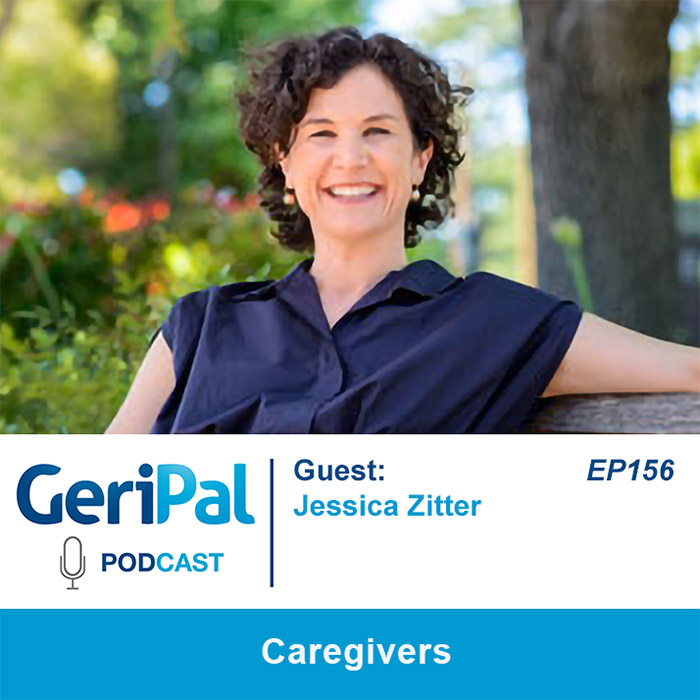
Caregivers: Podcast with Jessica Zitter
Many of us in geriatrics and palliative care assume that we are the experts in health care when it comes to understanding the caregiver experience. Every once in a while, we are humbled and reminded…
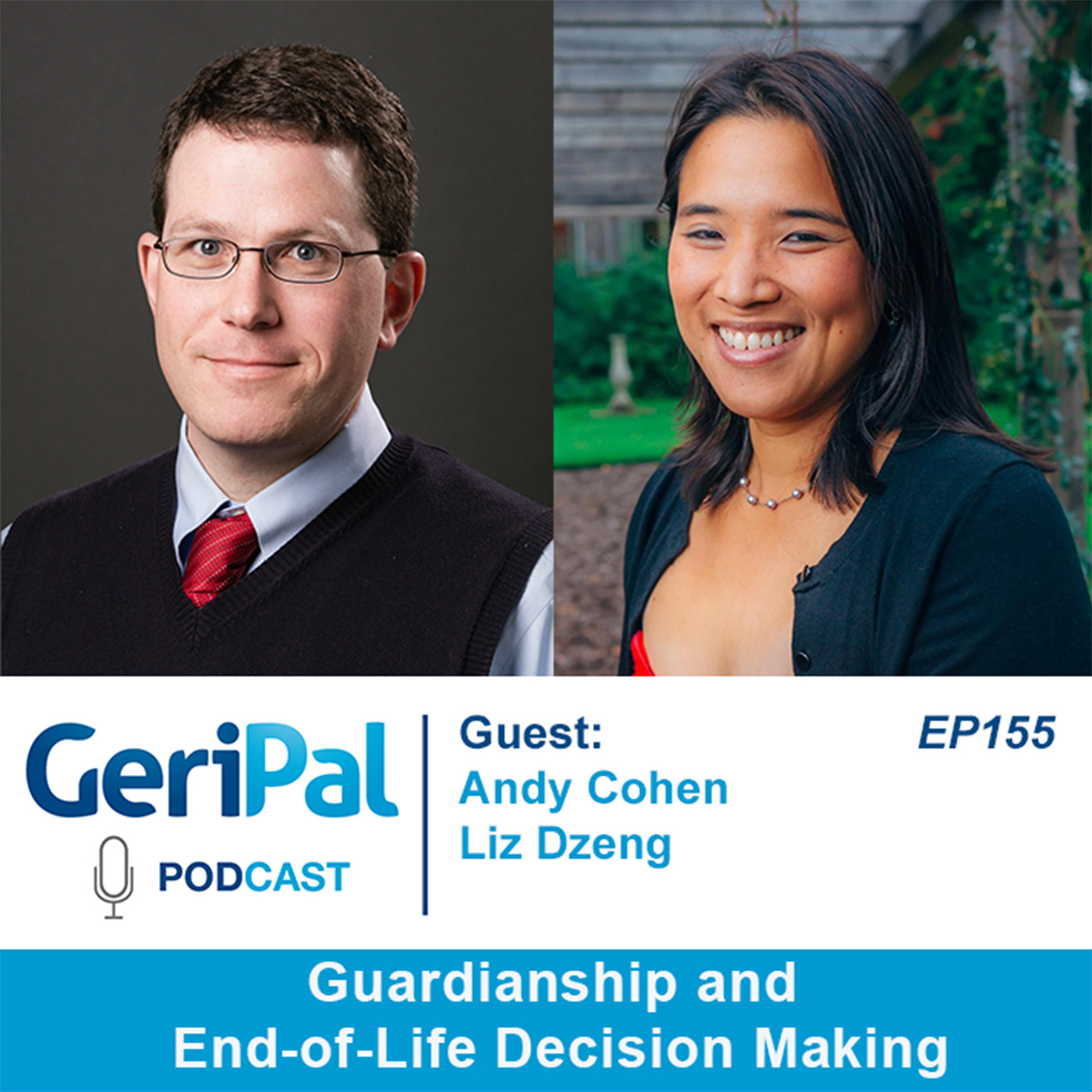
Guardianship and End-of-Life Decision Making: A Podcast with Andy Cohen and Liz Dzeng
Surrogate decision‐making around life-sustaining treatments in the hospital even in the best of circumstances is hard. It’s maybe even harder when caring for those who are conserved or have a profe…

Caregiving Boot Camp: Podcast with Zaldy Tan
“Diagnose and adios.” That’s the sad phrase that I’ve heard quoted more than once, representing caregivers' sentiment of what it’s like to be told by a clinician that your loved one has dementia.
T…